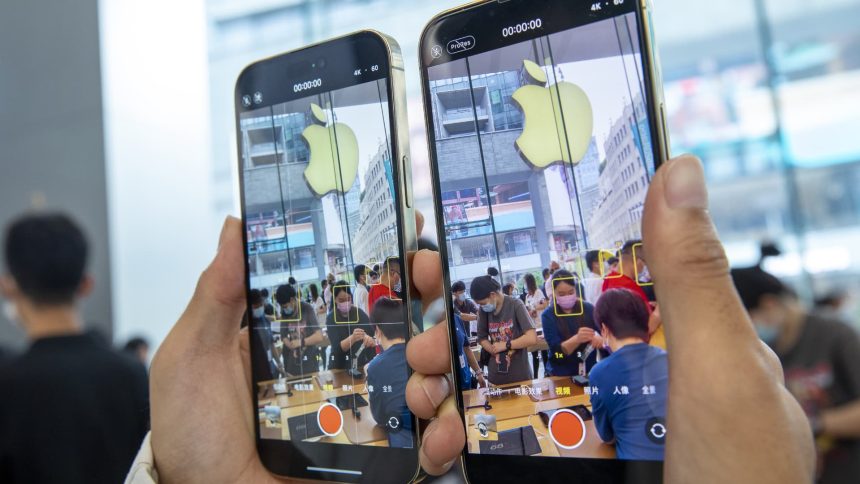Club holding Apple ‘s (AAPL) standing as an aspirational brand in China shouldn’t be affected by an apparent move by the Chinese government to further sever its reliance on foreign technology. Beijing has banned state employees from using Apple’s iPhones and other foreign-branded devices at work, The Wall Street Journal reported Wednesday, citing people familiar with the matter. Although the Chinese government has restricted certain officials from iPhone usage in years past, the order has been broadened to include a greater number of workers, demonstrating a more pronounced effort to uphold such regulations. It’s unclear, however, how any new rules will be applied among government workers. Apple did not immediately respond to CNBC’s request for comment Wednesday. The news parallels an ongoing U.S. crackdown on Chinese technologies. A growing number of states have moved to ban Chinese social media app TikTok on government devices. And Chinese smartphone maker Huawei has been the target of U.S. sanctions since 2019 amid allegations of spying for Beijing. Huawei, meanwhile, launched a new smartphone last week, with an initial batch quickly selling out online. AAPL YTD mountain Apple (AAPL) year-to-date performance Beijing’s new rules, as reported by the Journal, come weeks before Apple’s highly-anticipated launch event for the nascent iPhone 15 on Sept. 12. China accounts for about 40 million to 50 million iPhone units for Apple, according to Bank of America. The firm estimated Wednesday that the reported new Chinese ban could result in a 5 million to 10 million-unit headwind for Apple. “Additionally, if iPhones are banned from being carried into official workplaces… the impact could be higher given the high propensity of Chinese consumers to own and carry multiple phones,” Bank of America analysts predicted in response to the Journal story. Bottom line While the reported Chinese ban on iPhone usage for government workers, coupled with a resurgent Huawei, could undermine Apple’s standing in China, we expect the impact to be limited. Apple — which relies on Chinese consumers for about 19% of total sales — should remain a premium brand in China because of its prices, product quality and closed ecosystem. Moreover, any sales slump due to a downturn in China would likely be buffeted by Apple’s ongoing expansion into emerging markets like India — a pivot that’s been accelerated by worsening U.S.-China tensions. (Jim Cramer’s Charitable Trust is long AAPL . See here for a full list of the stocks.) As a subscriber to the CNBC Investing Club with Jim Cramer, you will receive a trade alert before Jim makes a trade. Jim waits 45 minutes after sending a trade alert before buying or selling a stock in his charitable trust’s portfolio. If Jim has talked about a stock on CNBC TV, he waits 72 hours after issuing the trade alert before executing the trade. THE ABOVE INVESTING CLUB INFORMATION IS SUBJECT TO OUR TERMS AND CONDITIONS AND PRIVACY POLICY , TOGETHER WITH OUR DISCLAIMER . NO FIDUCIARY OBLIGATION OR DUTY EXISTS, OR IS CREATED, BY VIRTUE OF YOUR RECEIPT OF ANY INFORMATION PROVIDED IN CONNECTION WITH THE INVESTING CLUB. NO SPECIFIC OUTCOME OR PROFIT IS GUARANTEED.
Club holding Apple‘s (AAPL) standing as an aspirational brand in China shouldn’t be affected by an apparent move by the Chinese government to further sever its reliance on foreign technology.
Read the full article here
News Room




